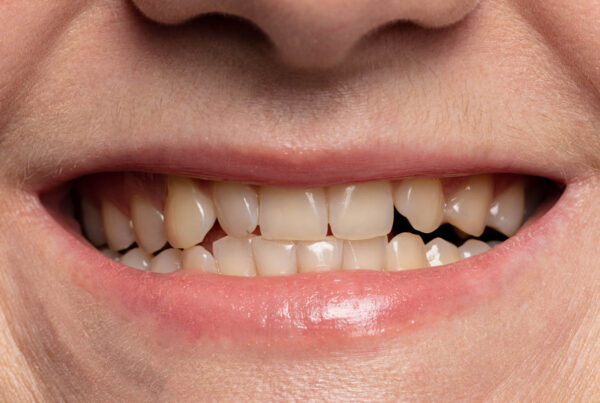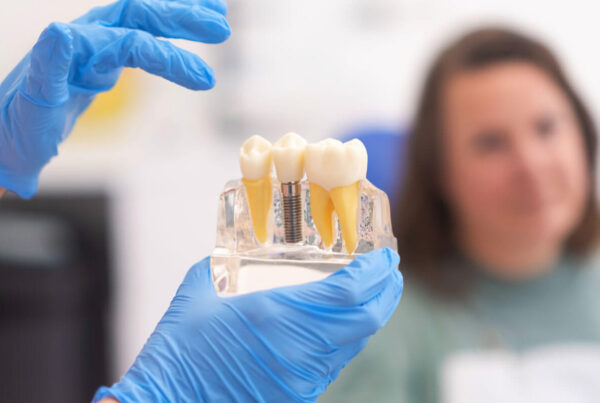Cavities are a common problem that can occur at any point in our lives, as long as there are natural teeth in our mouths.
Cavities, sometimes referred to as dental caries, are a result of tooth decay. Plaque, a layer of acidic bacteria, attaches itself to your teeth. This causes tooth decay and allows for further damage to your teeth, possibly resulting in a cavity. The cavity is a hole in the enamel of your tooth. Which can spread deeper into the layers of the tooth.
You may not feel pain when the cavity is first developing. This is one important reason why it is important to visit your dentist for a routine cleaning every 6 months. You can read more about the importance of regular dental visits here – What To Expect at Your 6 Month Dental Appointment.

Some early signs of tooth decay and cavities:
- Spots on your teeth
- Bad breath that doesn’t go away with brushing or mouthrinse
- Loose fillings
- Sensitivity to heat or cold
- Tooth pain
Tooth decay often begins between teeth or in teeth grooves in back teeth. It’s most likely to begin where toothbrush bristles don’t reach or aren’t able to clear away food particles. This is why it is important to include flossing in your daily oral hygiene routine. Also using mouthwash in your dental hygiene routine is helpful to prevent tooth decay and cavities.
So the best thing you can do to prevent cavities is to keep your mouth clean and free of food debris and particles. Therefore, brushing twice a day, along with flossing and using mouthwash, and visiting your dentist every six months is the recommended best way to try to avoid cavities.

The treatment your dentist chooses for your cavity depends on the size and location of the cavity.
Cavities can start on the surface of the tooth, or at the root of the tooth. If you have recessed gums and/or teeth with exposed roots, plaque acids can attack dentin and cause a root cavity. As a result, nerves in your teeth are exposed and you may feel pain when you eat or drink. So if you feel pain near the root of your tooth, chances are you may have some form of tooth decay and should consult with a dental professional.
If you treat tooth decay early enough, cavities may not have had a chance to develop. A fluoride treatment plan can be used for tooth decay to prevent cavities. But if a cavity is formed, you will likely need a filling. Your dentist may also suggest a crown.
When the cavity has caused an infection or inflammation in the tooth, often associated with pain, dentists often recommend a root canal. There are times when it may be necessary to remove and replace a tooth because it has become so badly infected or damaged by a cavity.
If you are experiencing any pain or discomfort in your mouth, you should not delay and see a dentist as soon as possible. Contact our office to make an appointment. We will discuss your specific issues and develop a treatment plan that works best for you. Let the dentists at Dentistry at 1818 Market Street in Philadelphia help you live an oral pain free life.




